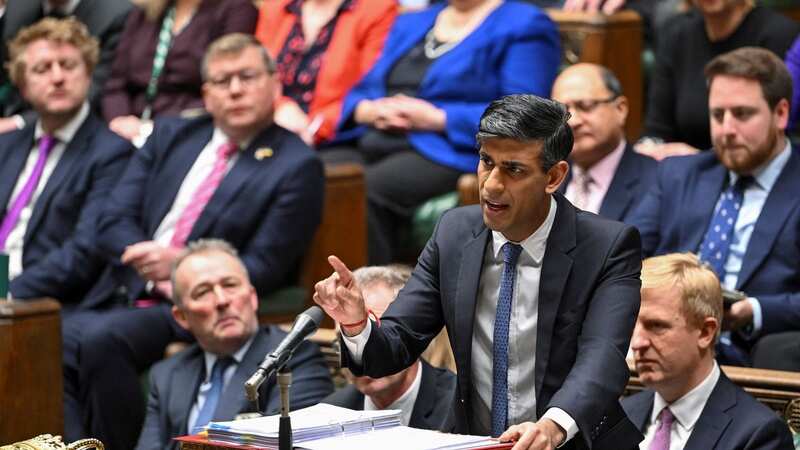Scotland loses trans court battle with Tories in 'devastating day for equality'

Scotland has lost its court battle against Rishi Sunak's decision to block landmark reforms for transgender people in a "devastating day for equality".
Scotland was set to become the first part of the UK to introduce a self-identification system for people who want to legally change their sex after they passed a Gender Recognition Reform Bill last December. But, in an unprecedented move, the UK Government decided to block the bill from gaining royal assent.
Scotland challenged the intervention but its highest civil court has today ruled it was legal for the UK to block the bill. LGBTQ+ campaigners and politicians said they were "disappointed" with the decision, which it said will mean "more uncertainty for trans people in Scotland".
The bill received cross-party support in Holyrood last year, passing by 86 votes to 39 after Members of the Scottish Parliament [MSPs] debated the details in a marathon parliamentary session. Those against the reforms warned the legislation could risk the safety of women and girls while supporters argued it would make the process easier, removing barriers such as seeking a doctor's diagnosis of gender dysphoria.
In her ruling published on Friday, Lady Haldane said Scotland's legal challenge "fails". "In so concluding it is important to recognise the novelty and complexity of the arguments and the sophisticated manner in which those arguments were presented before me and from which I derived considerable assistance," she said.
 Teachers, civil servants and train drivers walk out in biggest strike in decade
Teachers, civil servants and train drivers walk out in biggest strike in decade
Scottish Greens Equality Spokeswoman Maggie Chapman said it was "a devastating day for equality". "It is a democratic outrage, crushing basic rights and equality for some of Scotland's most marginalised people," she said. "It is horrible, it is heartbreaking and it is unjust. It makes a mockery of any vote or decision that we as parliamentarians take at Holyrood from now on, if the result is knowing that Westminster will veto anything they don't like."
Colin Macfarlane, director of nations at LGBTQ+ charity Stonewall, said: "We're disappointed that the Court of Session in Scotland has found in favour of the UK Government's unprecedented decision to use Section 35 to block the Gender Recognition Reform Bill from royal assent. This Bill was one of the most debated in the Scottish Parliament's history and was passed by a resounding majority of MSPs drawn from all major Scottish parties.
"This unfortunately means more uncertainty for trans people in Scotland, who will now be waiting once again, to see whether they will be able to have their gender legally recognised through a process that is in line with leading nations like Ireland, Canada and New Zealand. Self-ID is normal and is used in countries around the world. What our Parliament voted for was a small change that would have made a big difference to a vulnerable community. I hope the Scottish Government will consider all options for appeal."
Lord Advocate Dorothy Bain, representing Scottish ministers, argued during the hearings that Scottish Secretary Alister Jack used the landmark power because of a "policy disagreement". She also argued the order was "unlawful" and was "inconsistent with the constitutional principles" of the UK, effectively preventing Holyrood from passing laws the UK Government did not agree with.
David Johnston KC, acting on behalf of UK ministers, said the policy could have an "adverse impact" on reserved equality legislation. He argued the Lord Advocate's case of a policy disagreement was "simply irrelevant", adding Westminster "completely accepts that the Scottish Parliament is entitled to make its own legislation and that this is within its devolved power".
After the judgement, Mr Jack said: "I welcome the court's judgment, which upholds my decision to prevent the Scottish Government's gender recognition legislation from becoming law. I was clear that this legislation would have had adverse effects on the operation of the law as it applies to reserved matters, including on important Great Britain-wide equality protections.
"Following this latest court defeat for the Scottish Government, their ministers need to stop wasting taxpayers' money pursuing needless legal action and focus on the real issues which matter to people in Scotland - such as growing the economy and cutting waiting lists."
Read more similar news:
Comments:
comments powered by Disqus

































